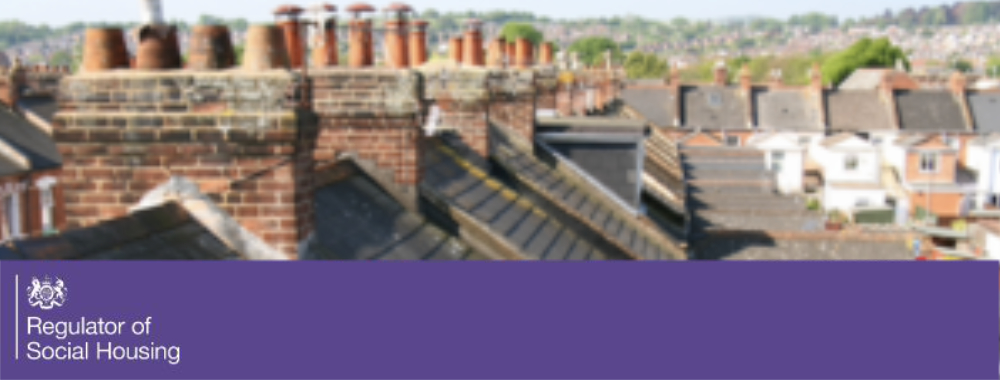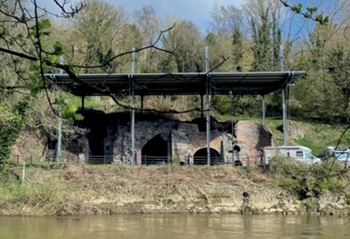Social landlords continue to build new homes, according to RSH statistics
At the end of October 2024 the Regulator of Social Housing published statistics about the social housing sector, including stock ownership and rents as of 31 March 2024. Returns from all private and local authority registered providers show that the sector provides around 4.5 million homes across England, with a net increase of nearly 43,000 social homes since 2023.
This overall increase has been driven by approximately 24,800 more Affordable Rent homes and 17,300 more low cost home ownership homes. There was also a small increase of roughly 700 social rent homes.
Private registered providers had a net gain of around 5,200 social rent homes, although this was partially offset by a decrease of around 4,500 social rent homes for local authorities (likely to be driven by right to buy sales and other schemes). Private registered providers built, purchased or acquired the majority of new homes in the sector, accounting for 85% of the total increase in Affordable Rent and 96% for low cost home ownership properties.
The statistics show that 82% of social homes in England are general needs (social rent and Affordable Rent), while supported housing makes up 11% and Low Cost Home Ownership 6%. Private registered providers also reported that 71% of homes had an energy efficiency certificate rating of EPC-C or above, and a further 22% had a rating of EPC-D.
Just over 511,000 homes were surveyed by landlords during the year. Over the year, these surveys and other provider activity identified nearly 42,000 homes which did not meet the Decent Homes Standard; 37,500 properties were remediated to bring them up to the DHS and 1,800 were sold or demolished.
A further 5,200 buildings were excluded from having to meet DHS requirements due to circumstances which prevent or limit remediation works.
As expected, rents increased over the year. The average increase in general needs (social rent) average weekly net rents was 7.2% between 31 March 2023 and 31 March 2024 (in line with the limit set for 2023/24 ). The average weekly general needs rent in England was £105.22, though this varied across the country. Average rents were lowest in the North East (£88.11) and highest in London (£129.83). Rents for local authorities are lower on average than for housing associations.
Will Perry, Director of Strategy atRSH, said:
"It is reassuring to see the sector continuing to build and acquire much-needed new social homes across the country, despite a challenging economic environment. This data provides a rich source of insight into the sector as a whole, helping us understand the challenges facing both landlords and tenants. Landlords should ensure they hold accurate, up-to-date data to inform strategic decisions, especially around rents and the condition of homes. "
This article was issued via Press Release as 'Social landlords continue to build new homes, according to RSH statistics' dated 29 October 2024.
[edit] Related articles on Designing Buildings
- 2024 Autumn Budget.
- Affordable housing.
- Affordable rented housing.
- Build to rent best practice guide.
- Design Council Homes Taskforce launched to support 1.5 million homes target within UK climate commitments.
- Help to buy.
- Housing associations.
- Local authority.
- Public v private sector housing.
- Reactions to the Autumn Budget announcement.
- Regulator of Social Housing.
- Regulator of Social Housing publishes regulatory judgements for ten landlords.
- Right to acquire.
- Right to buy.
- Right to rent.
- Shared ownership.
- Social housing.
- Tenant.
- Tenant management organisation.
Featured articles and news
The act of preservation may sometimes be futile.
Twas the site before Christmas...
A rhyme for the industry and a thankyou to our supporters.
Plumbing and heating systems in schools
New apprentice pay rates coming into effect in the new year
Addressing the impact of recent national minimum wage changes.
EBSSA support for the new industry competence structure
The Engineering and Building Services Skills Authority, in working group 2.
Notes from BSRIA Sustainable Futures briefing
From carbon down to the all important customer: Redefining Retrofit for Net Zero Living.
Principal Designer: A New Opportunity for Architects
ACA launches a Principal Designer Register for architects.
A new government plan for housing and nature recovery
Exploring a new housing and infrastructure nature recovery framework.
Leveraging technology to enhance prospects for students
A case study on the significance of the Autodesk Revit certification.
Fundamental Review of Building Regulations Guidance
Announced during commons debate on the Grenfell Inquiry Phase 2 report.
CIAT responds to the updated National Planning Policy Framework
With key changes in the revised NPPF outlined.
Councils and communities highlighted for delivery of common-sense housing in planning overhaul
As government follows up with mandatory housing targets.



















